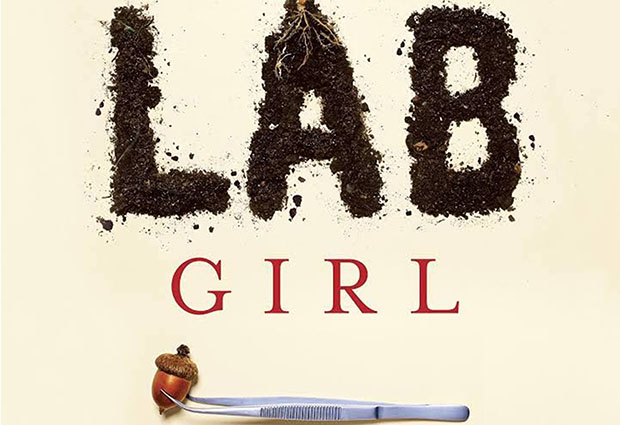
Review: Lab Girl
Hope Jahren’s autobiography educates and delights

First and foremost, Lab Girl is a love story. It is an ode to science and the people in Jahren’s life. The book details her career in science and the people who support her on this journey. It is a genuine and beautifully written story.
Early on we see Jahren studying Chaucer with her mother at the kitchen table. Just as science becomes a key part of her life so this early exposure to literature helped shape her talent for writing. Throughout the book, these two important parts of her life are cleverly combined to produce one great read. I found her blend of scientific precision and literary prowess fascinating, and as I know from my own writing, that’s no easy feat.
Interspersed with Jahren’s own journey is the story of the beloved trees that she has spent her life studying – the miracle that is a seed becoming a shoot before growing tall and strong to bear fruit. Having pursued my own PhD in botany, these educational inserts and research updates felt like familiar friends, reminding me of seminars, field work and research papers from a previous life. Interesting and fascinating in their own right, these chapters mirror Jahren’s own development.
I laughed, I cried, I loved this book.
Jahren’s journey begins in Minnesota, where as a child she plays under the benches in her father’s science lab in a local community college. It is here that she falls in love with science. Later, after starting a degree in English Literature, Jahren finds her calling in science, where she feels at home and accepted for what she is. From there, her career has many elements that scientists, and especially female scientists, will relate to. The constant worry about money, for instance, and how to pay the salary of her loyal and trusted sidekick, Bill. Or being shunned at conferences as the strange female scientist who won’t conform. Not to mention the regular moves across country, each time building a new lab from scratch. However, despite the hardships, the uncertain future and at times near poverty, Jahren never once doubts that she has taken the right path.
The sense of dedication, determination and vocation that Jahren embodies in her story – that is what it is to be a scientist. I still remember the exhilaration at finally getting a breakthrough in the lab, but unlike Jahren these thrilling moments weren’t enough for me to overcome the funding concerns, the pressure to publish and the need to continually uproot myself that comes with pursuing a career in science. I chose a different path, and I admire Jahren and others like her all the more for it.
Jahren is open and candid about her career decisions and brutally honest about her personal struggles and journeys of self-discovery. Her detailed descriptions of her mental health issues, for instance, touch on a sore subject in science, and I hope her voice helps to break down this taboo. The story of her horrific pregnancy was painful to read, as was her obvious disappointment at the lack of support she felt she received from her university at the time. I have never had to endure these horrors but her struggle to find her identify and her final acceptance of herself as a mother bought tears to my eyes.
I laughed, I cried, I loved this book. Yes, part of that is because I love science and plants, and because I can relate to Jahren’s journey of self-discovery as a scientist, woman and mother. But it’s also a damn good read and I would recommend it to anyone. Thank you for sharing, Hope Jahren.


